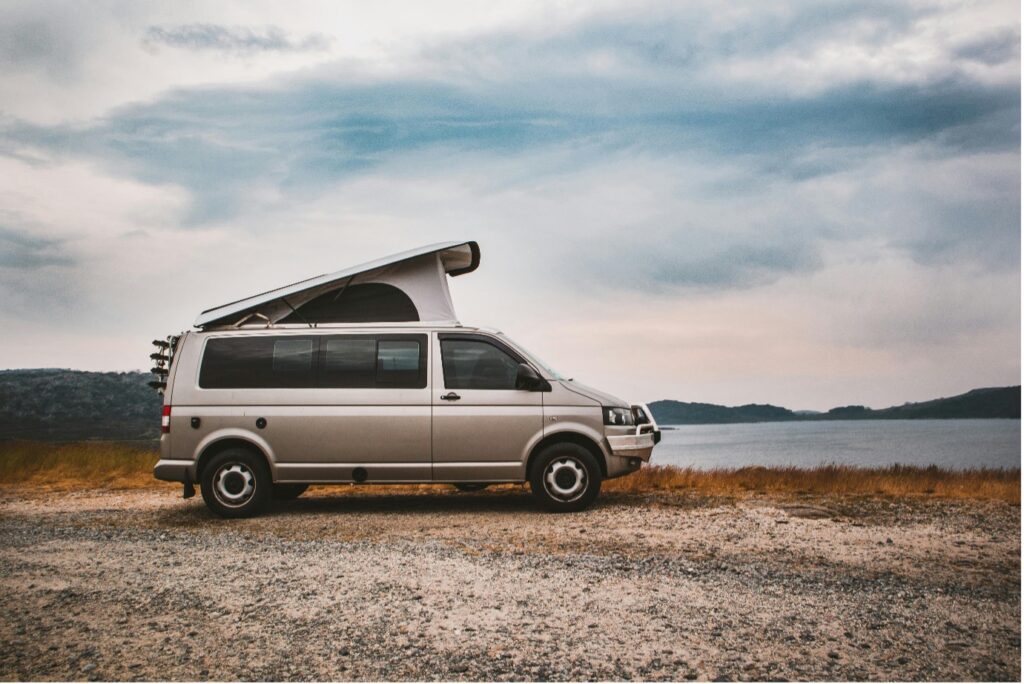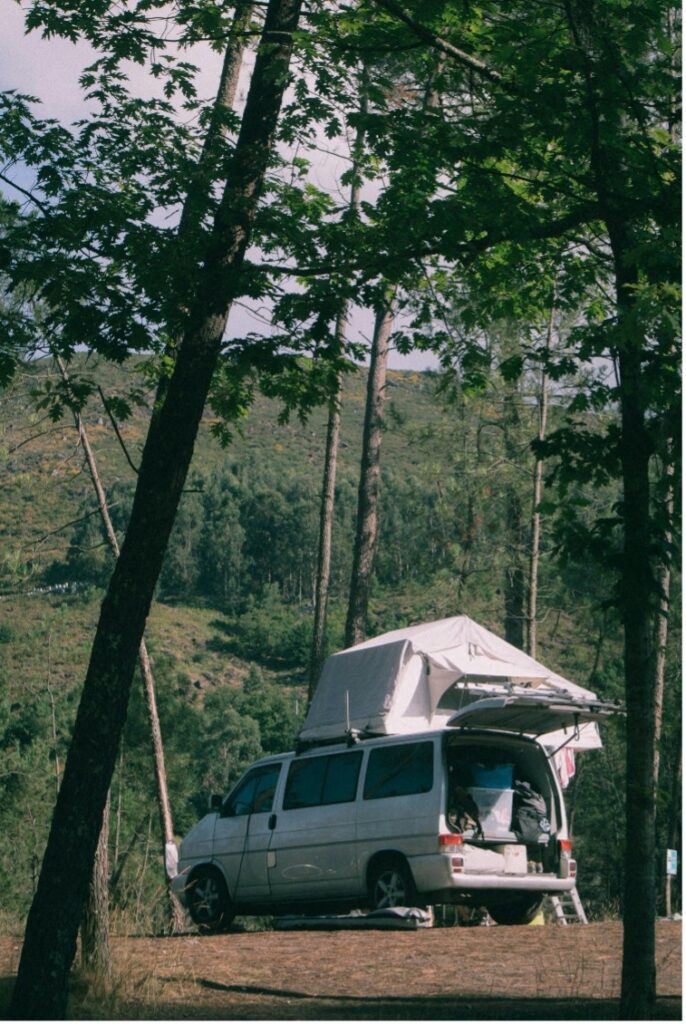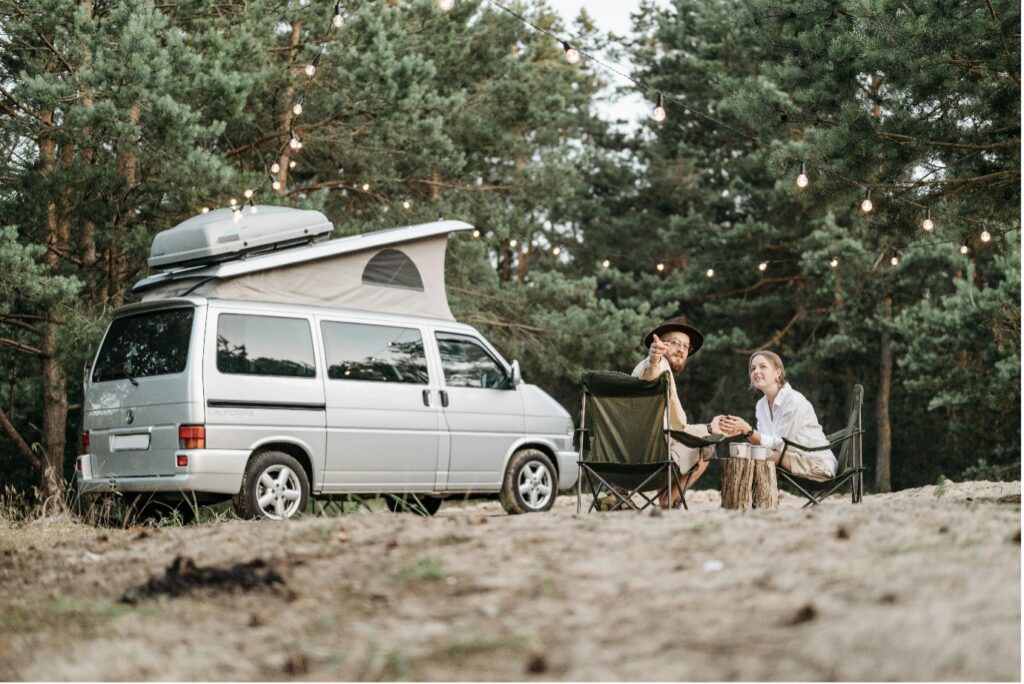If you love the outdoors then chances are that you’ve considered exploring the country by campervan (and if you haven’t, you should!). Campervanning is true freedom of travel, a great way to escape the stressful city life and connect with the environment. But as we enjoy life, it is essential to be considerate of the environment.
Nature gives us peace, and therefore, we should minimize our environmental footprint even when we are campervanning. Here in Scotland, campervanners have developed a mixed reputation, particularly when it comes to their handling of trash and toilet matters. I believe a lot of this is simply down to ignorance. This post aims to shed some light on sustainable campervan travel. Here are some essential tips to ensure your adventure is memorable and eco-friendly:

Pick a Fuel-Efficient Campervan
Sustainable campervanning starts with the vehicle. If at all possible, pick a campervan that provides good fuel efficiency. You can rent one or purchase an electric campervan since they are becoming more available and they are a greener alternative. (Top tip: www.campervaninsurance.co.uk to learn more about different types of insurance covers for the campervan that you choose.)
Make Use of a Renewable Energy
A power source is one of the essentials to be considered when camping. In most cases, people use fuel generators, but they are not suitable for the environment since they release gas emissions. Whenever you go camping, think of purchasing devices that are solar-powered.
Solar power is a renewable and clean source of energy. It minimizes carbon footprint, ensuring you do not take from the environment. Some modern campervans also come with solar panels, allowing you to charge your battery and other devices using solar power.

Carry Eco-Friendly Camping Gear
When camping, there are a few essentials that you will need, like a tent, blanket, stove, sleeping bag, utensils, etc. When purchasing these items, always check to see if they are eco-friendly. Ensure the stove you use does not produce toxic fumes. Also, ensure your tent, sleeping bag, and blanket are made using the right fabric, like organic cotton, bamboo, hemp, or wool.
Follow the Leave No Trace Principle
When camping, always remember this principle. It will help you create a sustainable environment for other humans and animals. Do not leave paper, plastic bottles, or food scraps once you are done. Collect everything to dispose of them correctly. In other words, leave the place as you found it.
Reduce Your Waste
Most people love disposable plates, cups, and spoons when camping since they are less stressful. But it is important to think of the environment. If these plates and cups cannot be recycled, then it is best to carry reusable utensils and bottles to minimize your waste. You will help reduce the amount of toxins that get into the soil due to the disposable items on the ground.
Respect Wildlife
As humans, we need to coexist with wildlife and nature to safeguard the ecosystem. The wildlife in local areas promotes global economies and promotes human well-being. Therefore, when camping, avoid persecuting animals and creating fire hazards. This ensures humans and animals coexist in peace and harmony.

Pick Eco-Friendly Campsites
Not all campsites provide eco-friendly services, but there are some that care about the environment, and those are the ones you should pick. A campsite with a recycling facility eliminates your worry about contaminating the environment. They ensure paper, glass, plastic, and organic materials are disposed of correctly. Some camping grounds also encourage visitors to take their trash home. All this contributes to the betterment of the environment and atmosphere.

Conclusion
Camping should not only be about enjoying yourself. It should also be about being mindful of the environment around you. Always ensure your campervan does not produce a lot of gas fumes, dispose of your waste responsibly, respect the wildlife in local communities, and pick eco-friendly gear to maintain a sustainable environment, even for small habitats.


 Winter Day Hike Packing List
Winter Day Hike Packing List
Leave a Reply